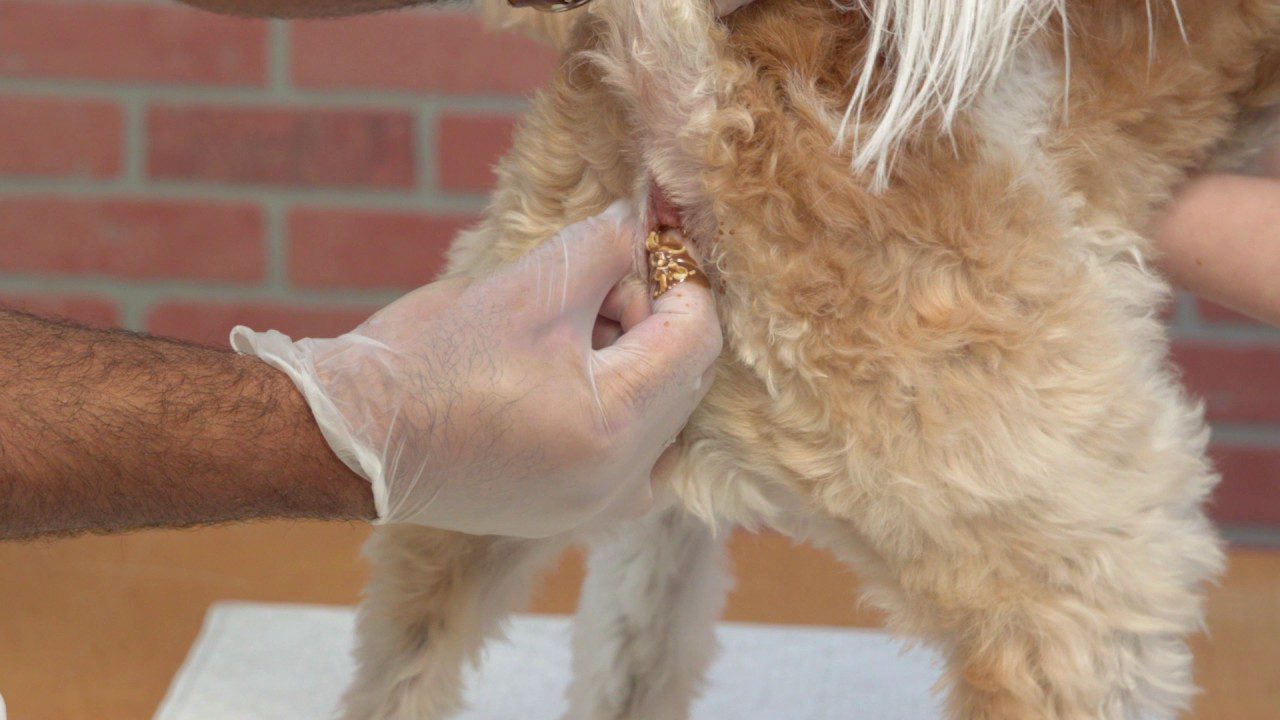Key Takeaways:
- Cat anal glands are small sacs located on either side of the cat's anus.
- These glands produce a strong-smelling fluid that is used for marking territory and communication.
- Problems with cat anal glands can occur when they become impacted or infected.
- Signs of anal gland problems include scooting, excessive licking or biting at the anus, and a foul odor.
- Treatment for anal gland issues may involve manual expression, antibiotics, or surgery if necessary.
Do you ever wonder why your furry feline friend sometimes has a not-so-pleasant odor? Or maybe you've noticed them scooting their rear end across the floor more often than usual. Well, my curious friends, it's time to dive into the mysterious world of cat anal glands! Understanding this peculiar topic is not only fascinating but also essential for any cat owner. Did you know that nearly 50% of cats will experience anal gland issues at some point in their lives? By unraveling the secrets behind these tiny glands, we can ensure our beloved pets' comfort and well-being. So, get ready to explore the ins and outs of cat anal glands because once you uncover their hidden mysteries, you'll be equipped with valuable knowledge to keep your furry friend happy and healthy.
What are anal glands in cats and why do they exist?
Anal Glands in Cats
Cats have two small sacs located on either side of their anus called anal glands. These glands produce a pungent, oily substance that has a unique scent. The purpose of these glands is not entirely clear, but it is believed that they play a role in marking territory and communicating with other cats.
Why Do Anal Glands Exist?
Anal glands are present in many animals, including cats, dogs, and even some rodents. In the wild, animals use their anal gland secretions to mark their territory and communicate with other members of their species. The strong odor produced by these secretions can convey important information about an individual cat's age, sex, health status, and reproductive status.
While domesticated cats may not need to mark territory as much as their wild counterparts, the anal glands still serve an important function for them. They help cats establish their presence and assert dominance over other cats in their household or neighborhood.
How cats use their anal glands to communicate with other cats
Scent Marking
Cats use their anal gland secretions as a form of chemical communication. When a cat rubs its body against objects or people, it leaves behind traces of its scent from the anal gland secretions. This behavior is known as "bunting" and is a way for cats to mark objects or individuals with their unique scent.
Aggression and Fear
In addition to scent marking through bunting, cats can also release the contents of their anal glands when they feel threatened or aggressive. This secretion acts as a warning signal to potential adversaries and can deter them from engaging in a physical confrontation.
Understanding how cats use their anal glands to communicate can help cat owners better understand their pet's behavior and respond appropriately in different situations.
Possible problems with a cat's anal glands and common issues
Impaction
One common problem with a cat's anal glands is impaction, which occurs when the gland's secretions become thick and cannot be properly expressed. This can lead to discomfort, pain, and even infection. Signs of anal gland impaction include scooting on the floor, excessive licking or biting around the anus, and foul-smelling discharge.
Infection
If a cat's anal glands become infected, it can cause further complications. Bacteria may enter the gland through small openings or injuries, leading to inflammation and abscess formation. Symptoms of an infected anal gland may include swelling, redness, pain, and discharge.
It is important for cat owners to regularly check their pet's anal glands for any signs of problems and seek veterinary assistance if necessary. Early detection and treatment can prevent more serious complications from developing.
Signs of anal gland problems in cats
- Scooting on the floor: Cats with anal gland issues may drag their rear end across the floor as a way to relieve discomfort or itchiness.
- Excessive licking or biting around the anus: Cats may excessively groom their rear end if they are experiencing discomfort due to impacted or infected anal glands.
- Foul odor: A strong smell coming from your cat's rear end could indicate an issue with the anal glands.
- Swelling or redness around the anus: Inflamed or infected anal glands can cause visible swelling or redness in the area.
- Pain or discomfort: Cats may show signs of pain when sitting, jumping, or being touched near their anus if they have anal gland problems.
If you notice any of these signs in your cat, it is important to consult with a veterinarian for proper diagnosis and treatment.
How a veterinarian can help with cat's anal gland issues
If your cat is experiencing anal gland problems, it is best to seek veterinary assistance. A veterinarian will be able to properly diagnose the issue and recommend an appropriate treatment plan. They may perform a physical examination of the anal glands and surrounding area to assess the severity of the problem.
Treatment options for anal gland issues in cats may include:
- Manual expression: The veterinarian can manually express the contents of the impacted or infected anal glands to provide relief and promote healing.
- Medication: Antibiotics or anti-inflammatory medications may be prescribed to treat infections or reduce inflammation in the anal glands.
- Surgical intervention: In severe cases where other treatments are ineffective, surgical removal of the anal glands may be considered as a last resort.
A veterinarian will guide you through the best course of action for your cat's specific situation and ensure their well-being.
Home remedies and preventive measures for healthy anal glands in cats
Regular Grooming
Gently brushing your cat's fur can help prevent matting and reduce the risk of blocked anal glands. Regular grooming also allows you to inspect your cat's rear end for any signs of swelling, redness, or discharge that could indicate a problem with their anal glands.
Dietary Fiber
Incorporating dietary fiber into your cat's diet can promote healthy bowel movements and help prevent anal gland issues. Consult with your veterinarian to determine the appropriate amount and type of fiber to add to your cat's food.
Weight Management
Maintaining a healthy weight for your cat can reduce the risk of anal gland problems. Obesity can put extra pressure on the anal glands, making them more prone to impaction or infection.
While these preventive measures may help reduce the likelihood of anal gland issues, it is still important to monitor your cat's health closely and seek veterinary care if any signs of problems arise.
Possibility of removing a cat's anal glands if they frequently have problems
In some cases where a cat experiences chronic or severe anal gland problems that do not respond well to other treatments, surgical removal of the anal glands may be considered as a last resort. This procedure is known as an anal gland ablation or excision.
However, it is important to note that removing the anal glands is generally seen as a drastic measure and should only be performed after careful consideration and consultation with a veterinarian. The procedure carries risks and potential complications, including difficulties with bowel movements and fecal incontinence.
Veterinarians will typically exhaust all other treatment options before considering surgery, and it is usually reserved for extreme cases where the cat's quality of life is significantly affected by recurrent anal gland issues.
Cat breeds more prone to having issues with their anal glands
While any cat can potentially develop problems with their anal glands, certain breeds might be more predisposed due to specific anatomical features or genetics. Some breeds that are commonly associated with higher incidences of anal gland issues include:
- Persian Cats: Their long fur can increase the likelihood of matting and blockage of the anal glands.
- Burmese Cats: They may have narrower anal gland ducts, making them more prone to impaction or infection.
- Manx Cats: The absence or shortness of their tail can lead to altered anatomy around the anal area, potentially affecting the function of the anal glands.
It is important for owners of these breeds to be especially vigilant in monitoring their cat's anal gland health and seek prompt veterinary care if any issues arise.
In conclusion, cat anal glands are small sacs located near their rear end that produce a smelly liquid. These glands help cats mark their territory and communicate with other cats. If you notice any issues with your cat's anal glands, it's important to consult a veterinarian for proper care and treatment.
How do you know if your cat needs his glands squeezed?
Indications that your cat may require manual gland expression include redness in the area and excessive scooting or licking. It is important to consult your veterinarian before attempting to express your cat's anal glands. Conditions like infections or tumors in the anal glands may require additional medical attention.
Do male cats need their glands expressed?
Regular gland expression is not necessary for most cats. It is typically only needed for cats that have ongoing problems with their glands, although cats who are overweight may be at a higher risk of developing anal sac disease.
How often do cats express their glands?
The recommended time interval for expressing your cat's anal glands varies based on your specific cat. It is generally best to have the glands moderately full each time they are expressed, which typically occurs every 6 to 8 weeks. Regular monitoring and expression of the anal glands are considered routine care for cats.
Why does my cat squirt brown liquid?
The pungent liquid found near a cat's bottom is likely a substance secreted by their anal glands. This fluid is typically a shade of tan or brown. Cats may release this substance when they feel frightened or stressed, possibly as a means of self-defense, similar to how skunks spray to protect themselves. However, the anal glands can also leak if they become damaged.
Do all male cats squirt?
Spraying can be done by both male and female cats, but it is more common in unneutered males. Unneutered males also have the most pungent urine. Even after being spayed or neutered, around 5% of females and 10% of males may continue to mark their territory with urine.
Do cats express glands when happy?
Cats naturally express their anal sacs when they are happy, which may come as a surprise. This behavior is an extension of their joyful territorial marking activities.
















